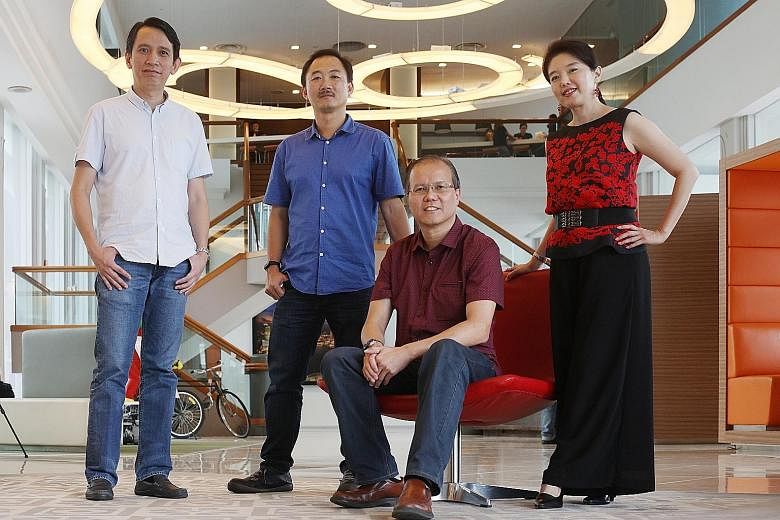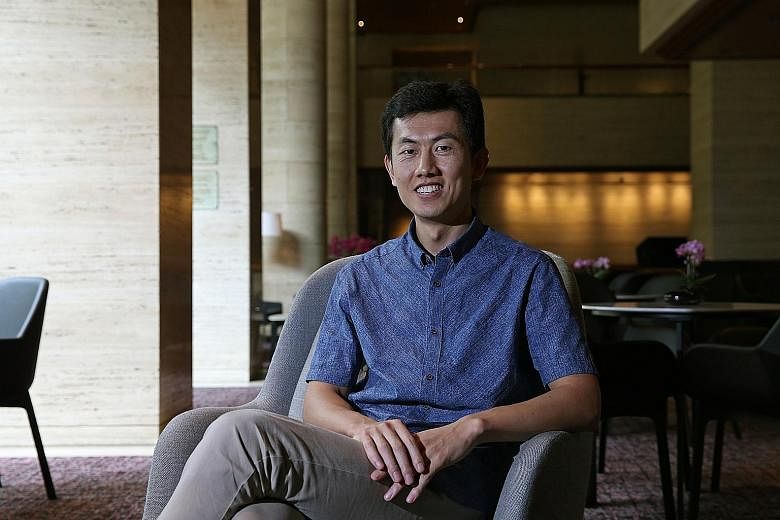It is easy to see why China is widely considered a daunting market. Its fierce levels of competition and unique culture have meant that success has eluded even large American corporations such as eBay and Home Depot, but some Singaporean entrepreneurs are thriving there.
Mr Eddy Zhang, who launched car-sharing platform PPzuche in China in 2013, says the country's huge market has always been its main selling point.
His firm, which was recently re-named Start, was founded in Singapore in 2012.
"We decided to go to China because in terms of population, it is the single biggest uniform market. This offers the greatest potential for our business model," said Mr Zhang, who is also chief executive of the business.
Nearly three million people in China now use Start to connect with others to share their cars.
The size of the market means that capturing even a small proportion could mean significant rewards for companies.
"In the next decade, we expect around 700 million car licence owners but only about 300 million cars because of government restrictions. The gap between demand and supply is huge," he noted.
"Start's target in the coming five years will be to get 10 per cent of car owners on our platform. In Beijing alone, there are over five million cars so 10 per cent will already be equivalent to the total number of cars in Singapore. The potential from the market size is immense."
Apart from its size, the Chinese market is also becoming one of the fastest-growing and most competitive start-up ecosystems in the world.
"Many start-ups still think that China is lagging behind in the technology industry. This is a misconception; China is currently leading the financial technology industry globally," said Mr Eric Kng, director of local start-up 71SG, which aims to help start-ups expand overseas by linking them up with the connections and capital they need.
Mr Kng added that overhead costs to enter the Chinese market are low and the country has been opening up more to foreign companies in recent years.
In spite of the vast opportunities, local start-ups that have ventured into China warn that the journey is unlikely to be a bed of roses.
"Less than half a year after Start launched in China, another six platforms emerged doing exactly the same things in the exact same cities. It's far more competitive than we thought. The bigger the market, the more competitive it will be," said Mr Zhang.
Mr Mak Chee Wah, chief executive of local start-up WeGoGo, believes that the tough competition forces firms to find their niche in the market. The company uses Chinese instant messaging application WeChat as a platform to connect Chinese tourists with foreign businesses.
"The tough competition among bigger players means that it is important for firms to differentiate themselves from the rest. The sheer size of the market means firms cannot cater to everyone, anyway. It is better to find a niche to build upon," said Mr Mak.
He and his team are focusing on the growing number of fully independent visitors from China and their changing attitudes towards travel.
"We find that more people increasingly travel to learn about themselves and the world. We try to connect them with businesses which can offer them unique and authentic local experiences at nearby getaways in Asia," he added.
Start-ups thinking of going into China should also understand the local culture and the preferences of its consumers, said Mr Mak, who has travelled extensively in the country since 2010.
"My experiences in China really helped in understanding consumer needs and preferences. WeChat is the de-facto social media tool used by over 500 million people in China. By building on WeChat's functionalities, we are able to engage the Chinese travellers," he said.
Mr Zhang agreed, saying: "Founders should live in China for a few months to talk to their potential customers and get feedback on their product before they expand there. If the product fits the demands of users, everything else can be solved."
He added that Singapore start-ups can look to partners in China to get up to speed with local consumer preferences and habits.
However, Mr Gan Fong Jek, managing partner of venture capital firm Jubilee Capital, said that tackling the heterogenous Chinese market would not be a simple task.
"Start-ups often think China is a homogenous market - it is not... Even among the urban population, there are differences between the tiers of cities in terms of consumer demand and consumer behaviour, not to mention the huge rural population which is severely underserved," said Mr Gan.
Mr Zhang noted that a hardworking team and sufficient preparation would help.
"It's difficult, but the competition will push firms to plan further ahead to make sure you provide the best service and gather the most resources. Start-ups will then achieve their fullest potential," he said.
"China is still the biggest developing economy with lots of business opportunities. I'm confident that start-ups which try hard and learn continuously will be rewarded."


